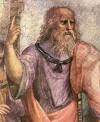Diogenes: Looking for an Honest Man
Thousands of artist's impressions exist of Diogenes.
Click thumbnail to view full-size




British bankers would have loved Diogenes...not!
With honor and respect this scribe borrows his name..
I apologise in advance for what I realize is going to come as a terrible shock to my huge readership, family, friends and two budgies.
It is with deep sorrow I have to fess-up and admit I am not really Diogenes. There, I’ve said it; finally got it off my chest and I feel a whole heap better.
Well…I say I’m not Diogenes, what I really mean is I am not the Diogenes in all the history books; the one every one knows was a barefooted and mystical figure scurrying around Athens, carrying a lamp and looking for an honest man. Or so the legend goes.
Anyway, a bit more about me…whaaat! You would rather hear about the real deal; you’d rather read about a smelly old Greek that lived in a drain and didn’t believe a word anyone told him? Well, you are a strange lot. Let me see, no books on early Greece…a few jokes, “If we attacked Turkey from the rear, would Greece help?” No? Ok, you win, here’s a bit about the original Diogenes if you’re sure you wouldn’t rather know about moi.
Either Diogenes was a popular name around 2000 BC, or 13 other people have had the same idea to use the famous philosopher’s name, because there have been no less than 13 well-known people of the same name throughout history. (If I ever become well-know, that’ll be 14). Also, and perhaps the biggest slur against the good name of our Diogenes, a mental disease is named for him. “Diogenes Syndrome,” a misnomer for “Senile Squalor Syndrome,” the symptoms of which include extreme neglect, social withdrawal and rubbish hoarding, (Syllogmania). Those that know me will now be saying, “He’s back talking about himself again.”
But the real-deal Diogenes was not like this at all. He sought out company in order to discuss his views of Greek society and hoarded nothing, he always vouchsafed self-sufficiency… Surely we could change the name of this disease in order to clear this good man’s name…As another of the symptoms is lack of shame, how about Blair Syndrome?
…Diogenes was born in BC 412 in Synope (now Sinop, Turkey). His dad, Nicesias, was a banker and there is evidence suggesting Diogenes joined his pater in the bank. It also seems the two became involved in defacing coins and destroying money as smashed coins have been found in archaeological digs with Nicesias name on them. We do know for sure Diogenes was exiled at this time and moved to Athens. Here, he became a beggar of sorts, living in a pipe-like tub; as did Gandhi, he made a virtue of poverty, eventually moving on to Corinth. He continued to debunk what he saw as the false and sacred cows of society: its materialism and corrupt power. He might well have been removed by those he preached against, but he was beloved by the citizenry of the town as he was seen carrying his lamp, saying, so the legend has it, “I am looking for an honest man.” Wouldn’t he have been disappointed in a search around today’s Houses of Parliament?
Diogenes abhorred convention, especially that which condemned “conventional” evil, while condoning “real” evil. Don’t we see this today while we condemn petty nonsense in the society around us, such as smoking a bit of pot, jailing the miscreants, while we begin homicidal “wars,” all rigged in our favour and fuelled by commercial greed, to rage on unchecked.
Diogenes himself travelled with Manes, a “slave” to Athens, but released him when he wanted to leave. He said, “If Manes can live without Diogenes, then Diogenes can live without Manes.”
He found people who would do nothing for themselves utterly contemptible; themes explored by Socrates, who preceded him, and Plato, a contemporary who was present at Diogenes’ death. One day, the great philosopher, Plato, was holding forth, declaring that man was nothing more nor less than “A featherless chicken.” Diogenes went to the market and returned with a plucked fowl. After some consultation, Plato amended his conclusion to add, “But man has broad, flat nails.”
It is interesting to reflect as we read of the simplicity of the scientific knowledge of 2000 years ago, how rudimentary our own observations will appear to men living 2000 years hence, should we survive that long, which is doubtful, unless we succeed in seeding other planets.
The information we have of the great minds of these times is extremely sketchy and relies a lot on legend. Diogenes was captured at one stage of his adventures by pirates. He famously said, when asked of his trade, “Sell me to a man who needs a master, that is my field.”
He became a friend of Alexander the Great, who greatly admired the philosopher. When first introduced to Diogenes, the powerful man asked if these was anything he could do for him. “Yes,” smiled Diogenes, “Please stand out of my sunlight.”
Another time Alexander, whose father had just died, found Diogenes studying a heap of bones about to be loaded into a tumbrel. He asked him what he was looking for. Diogenes replied, “I am looking for the bones of your father…but I can’t tell them apart from those of the slaves.”
He must have had citizens hanging on his every word as there were no newspapers of the day, unless they were hand-written missives for the wealthy. But the word of his latest revelation soon travelled to all corners of Athens and the country. Imagine if we today can find his thinking profound, how revolutionary it must have seems in these ancient times.
Of the many anecdotes attributed to the cynic, one concerns the arrival in Athens of King Phillip. The whole city was a’ bustle preparing for his coming. Diogenes was to be seen rolling his “tub” he lived in up and down the streets. “You are all so busy,” he said, “I wanted to do something equally significant.” It was said he even discarded his one possession, a drinking bowl, saying, “If those peasants can drink from cupped hands, so can I.”
On another occasion, he could be found unashamedly masturbating in front of his disciples, saying, “Now, if only I could as easily rid myself of my hunger by rubbing my stomach.”
Diogenes died in BC 323. The cause of death has been attributed to a dog bite; eating a raw octopus, and even from holding his own breath! (This is practically impossible, unless performed on the edge of a precipice, because as you black-out, you begin to breath again). When asked about his burial arrangements, he had said, “Just throw me outside the city walls so the wild animals can feast on me.” He added, “But leave me a big stick so I can beat them off!” He was asked, “How can you use a stick, you will be dead?” “Exactly,” Diogenes smiled. “So why all the fuss about my burial if you realize I won’t even care if I am eaten by wild animals as I shall feel nothing?”
Diogenes did pen several books on the materials of the day, but none survive. What we know of him is from accounts by his contemporaries, such as Plato and all the legends handed down over the years. There is no smoke without a fire and much we hear must be true, especially his devotion to his principles of never taking anything at face value and advocating simplicity as many great men have done since (Thoreau, and of course Gandhi come to mind).
Anyway, that’s a peep into what we know about the real Diogenes, from this humble scribe borrowing his name: Can’t spend more time writing, sorry, the rag and bone men are here to pick up my belongings and am installing my tub in the park. Probably freeze to death the first night, this ain’t Athens.
Notes: Not many sayings of Diogenes have survived, here are some commonly attributed to him. . He observed that if the flute-player or athlete were to devote their efforts towards training their mind or moral conduct the results would not be unprofitable. He also noted that just as those who are accustomed to a life of pleasure feel disgust when they experience the opposite, those habituated to a lack of pleasure seem to derive more pleasure from despising pleasure.
He used to call the demagogues the lackeys of the people. He said bad men obey their lusts as servants obey their masters. He called love the business of the idle and said lovers derive their pleasure from their misfortune.
Insofar as Diogenes was known as "The Dog" throughout Athens, at a feast certain people kept throwing all the bones to him as they would to a dog. He played a dog's trick and urinated on them. It is said that Diogenes trampled upon Plato's carpets with the words "I trample upon the pride of Plato", who retorted, "Yes, Diogenes, with pride of another sort."
(This rather reminds me of the debate between Theists and Atheists. The proof lies upon those who say they believe. In the case of Plato, he was arguing that Diogenes was proud of having nothing, difficult argument to substantiate, “proving a negative” and the kind of trickery used by the over-educated to fool the masses).
Being asked whether death was an evil thing, Diogenes replied, "How can it be evil, when in its presence we are not aware of it?"
(lot of holes in this one: really people fear dying, not death, and getting there is often to be feared)
When someone declared that life is an evil, he said, "Not life itself, but living ill." To one who protested that he was ill adapted for the study of philosophy, he said, "Why then do you live, if you do not care to live well?" Seeing a youth dressing with elaborate care, he said, "If it's for men, you're a fool; if for women, a knave." Being asked what creature's bite is the worst, he said, "Of those that are wild, a sycophant's; of those that are tame, a flatterer's".
Having been invited to dinner, he declared that he wouldn't go as the last time he went, his host had not expressed a proper gratitude! Someone took him into a magnificent house and warned him not to expectorate, whereupon having cleared his throat he discharged the phlegm into the man's face, being unable, he said, to find a meaner receptacle.
Plato saw him washing lettuces, came up to him and quietly said to him, "Had you paid court to Dionysius you wouldn't now be washing lettuces." Diogenes with equal calmness answered, "If you had washed lettuces, you wouldn't have paid court to Dionysius."
One day he shouted out for men, and when people collected, hit out at them with his stick, saying, "It was men I called for, not scoundrels." He was described as terminating a discourse by squatting down and evacuating his bowels in the presence of his hearers.
Being asked why people give to beggars, but not to philosophers, he said, "Because they think they may one day be lame or blind, but never expect that they will turn to philosophy." He was asking alms of a bad-tempered man, who said, "Yes, if you can persuade me." "If I could have persuaded you," said Diogenes, "I would have persuaded you to hang yourself."
As we saw, he had been captured by the pirates; To Xeniades who purchased him he said, "You must obey me, although I am a slave; for, if a physician or a navigator were in slavery, he would be obeyed." Xeniades took him to Corinth, set him over his own children and entrusted his whole household to him.
Alexander once came and stood opposite him and said, "I am Alexander the great king." "And I, " said he, "am Diogenes the Cynic." When someone was extolling the good fortune and splendour another had experienced in sharing the suite of Alexander, Diogenes said, "Not so, but rather ill fortune -- for he breakfasts and dines when Alexander thinks fit."
Alexander stood opposite him and asked, "Are you not afraid of me?" "Why, what are you, " said Diogenes, "a good thing or a bad?" Alexander replied, "A good thing" whereupon Diogenes said, "Who, then, is afraid of the good?" Alexander is reported to have said, "Had I not been Alexander, I should have liked to be Diogenes." As it turned out, both Diogenes and Alexander died on the same day in 323 B.C. Alexander was 33 and Diogenes was 90.
.
(








